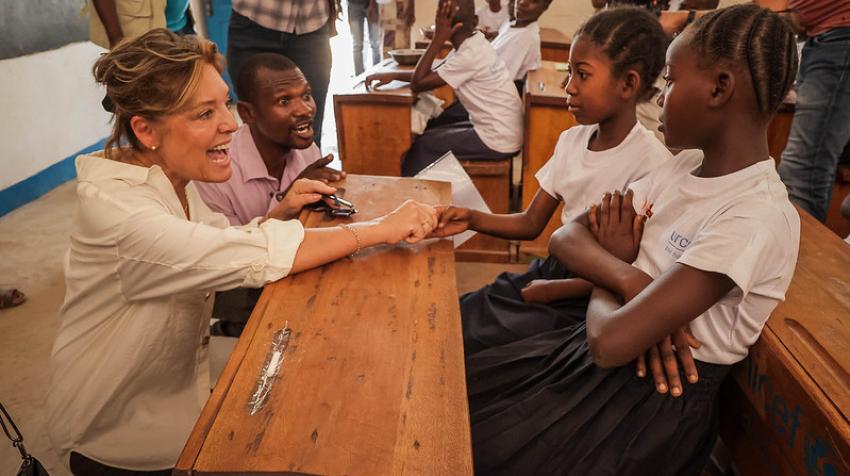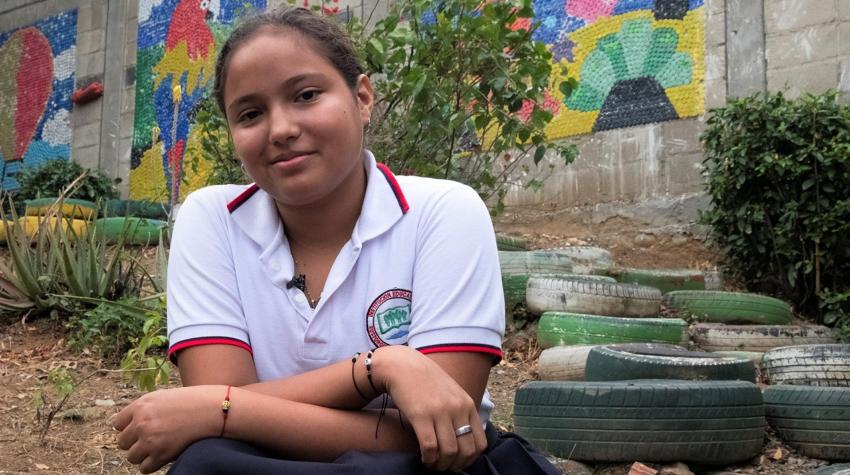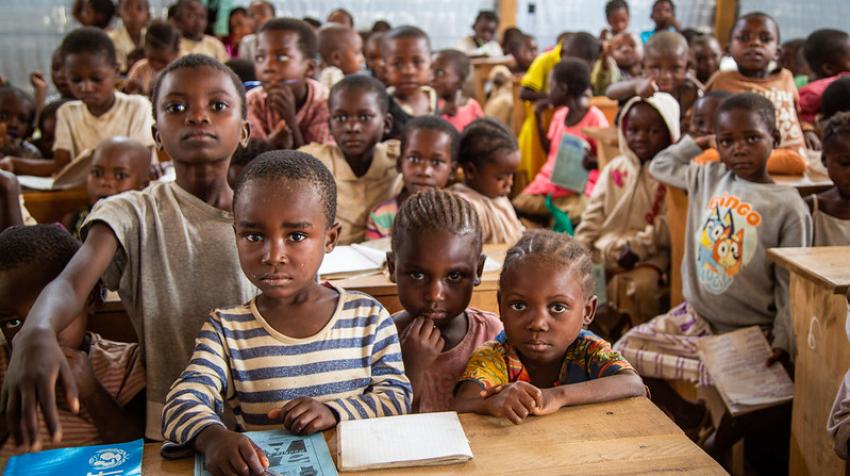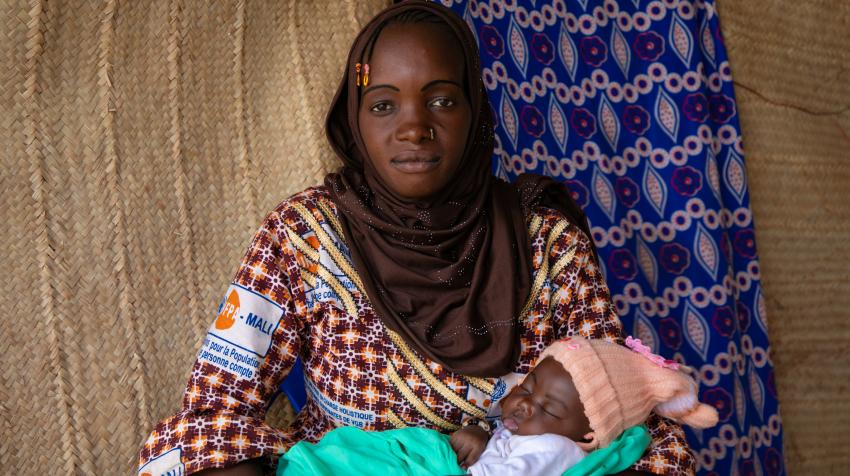8 September 2023
Education is a liberating force for every child and a building block for a better world. It is the foundation for every young person’s future, as well as the foundation upon which peaceful and prosperous societies are built.
As the world commemorates International Literacy Day (8 September), we must ensure that girls and boys impacted by armed conflict, climate-induced disasters and forced displacement are not left behind, but rather placed at the forefront for an inclusive and continued quality education.
As the United Nations global fund for education in emergencies and protracted crises, Education Cannot Wait (ECW) and its strategic partners around the world are taking important steps to ensure that every child and adolescent living in crises contexts has access to a quality education despite the chaos all around them. In doing so, we jointly provide an opportunity for them to thrive and rebuild from the ashes of conflicts and disasters.
The ECW 2022 Annual Results Report provides incisive analysis on the ongoing challenges, trends and opportunities arising from these investments. Such support significantly strengthens our odds in the global race to deliver on the promises outlined in the Sustainable Development Goals (SDGs), the Paris Agreement on climate change, and other international accords.
A global education crisis
The challenges before us are daunting. Our 2023 Global Estimates Study indicates that there are 224 million crisis-impacted children in urgent need of a quality education. This growing number should sound an alarm that reminds us of what needs to be done: we must invest in education and in those left furthest behind.
The facts are telling: as much as half of out-of-school children are concentrated in just eight countries—Afghanistan, the Democratic Republic of the Congo, Ethiopia, Mali, Myanmar, Nigeria, Pakistan and the Sudan.
The quality of education in these and a few dozen other crisis contexts are of utmost concern. Of the 224 million girls and boys mentioned above, just 11 per cent are in school and meeting minimum standards in reading and math; they still lack school meals, mental health and psychosocial services, and adequate water and sanitation.
The funding challenge is imperative and must be addressed without any further delay: the education of these children simply cannot wait. Indeed, funding for education in emergencies and protracted crises has grown by more than 57 per cent over just three years—from $699 million in 2019 to more than $1.1 billion in 2022. However, while funding grew by over 50 per cent, the needs have jumped dramatically in recent years, from $1.1 billion in 2019 to almost $3 billion by the end of 2022 according to the new ECW Annual Results Report. Only a third of education requirements were funded in 2022, creating a widening gap that is leaving more children and youth behind and derailing development gains the world over.
We stand at a crossroads. We have a choice to make. Do we boldly and generously tackle the learning crisis now, or do we allow it to escalate further and deeper?
We need to remember that protracted crises are lasting longer than ever before in recent history. Record numbers of people are displaced by armed conflicts, droughts, floods and other climate-related disasters. Vulnerable children, particularly girls and children with disabilities, continue to face human rights violations and limited access to education.
One in every 23 people on Earth is in need of humanitarian assistance and protection. The number jumped from 274 million at the start of 2022 to a record 363 million as of 31 July 2023, according to the United Nations Office for the Coordination of Humanitarian Affairs Global Humanitarian Overview 2023, July Update.

Internal displacement is also on the rise. There were nearly 61 million new internal displacements in 2022, a 60 per cent rise from 2021 largely fuelled by the war in Ukraine and renewed violence in the Democratic Republic of the Congo, Ethiopia and Myanmar.
The climate crisis is also an education crisis. Worldwide, climate change is impacting the education of 40 million children every year, according to a recent position paper by the United Kingdom Foreign, Commonwealth and Development Office. Climate-induced disasters affect children’s ability to go to or stay in school. And, even when children do stay in school, climate and environmental changes—such as rising temperatures, droughts and floods—affect their ability to learn. These negative impacts on learning exacerbate cycles of poverty and inequality while, at the same time, driving conflict for increasingly scarce natural resources.
And despite a global consensus that investing in girls’ education offers one of the best returns on investment, gender disparities persist in access and completion rates, especially at the secondary level and in high-intensity crises in places such as Afghanistan, Chad, South Sudan and Yemen.
While these stark figures remind us of the humanitarian needs, we must bear in mind that these millions of people are all in great need of ending their dependency on humanitarian assistance, and of enjoying their right to socio-economic development. A quality education is the safest investment we can make in achieving the SDGs and all human rights.
Renewed hope
Since the inception of ECW at the World Humanitarian Summit in 2016, the Fund has mobilized more than $1.5 billion and invested in programmes across 44 countries and crisis settings. In addition, collective resource mobilization efforts from all partners and stakeholders at the global, regional and country levels have helped unlock an additional $842 million of funding contributed in alignment with ECW investments in 22 countries.
Overall, ECW programmes have now reached 8.8 million children, including 4.2 million in 2022 alone. In response to the largest education crisis in modern history, fast-acting, life-saving ECW COVID-19 grants reached an additional 32.2 million children.
Important strides are being made to improve the quality of education, as well. In 2022, 76 per cent of First Emergency Reponses and 69 per cent of Multi-Year Resilience Programmes provided solid evidence of education outcome change, compared to 35 per cent and 50 per cent in 2021.
These impressive results are being achieved through broad and deep holistic education investments in catch-up classes, school-feeding programmes, conditional cash transfers, mental health and psychosocial support, teacher training, water and sanitation, health, and protection. Together, these offerings incentivize families to send their children to school and provide the enabling environments to improve the quality of learning.
In Mali, 89 per cent of the children who completed an ECW-supported transitional learning programme delivered by EduCo, Plan International, Save the Children and the United Nations High Commissioner for Refugees (UNHCR) successfully transitioned into the formal school system in 2022. In Syria, 76 per cent of girls benefiting from an ECW investment delivered by Save the Children and UNICEF demonstrated improved literacy skills. In Uganda, 73 per cent of students moved up one grade level in math and 72 per cent in reading through a multi-year ECW programme delivered by AVSI, the Luigi Guissani Foundation and Save the Children. In Colombia, ECW investments are establishing temporary learning spaces to equip Venezuelan migrant learners with essential skills while they await formal education placement. In 2022, the programme reached nearly 9,300 children, with 64 per cent transitioning to formal education.

The way forward
Alongside its strategic donors and implementing partners, ECW has built a global movement to deliver on the United Nations New Way of Working and the Grand Bargain Agreement, including coordination and collaboration in the form of joint programming.
The 2023-2026 ECW Strategic Plan identifies five important priorities: holistic learning outcomes; transforming global financing data; responding to climate change; placing localization and community participation at the core of our investments; and continuing to advance our commitments to gender equality, disability inclusion, mental health and psychosocial services, and protection, as well as a strong attention to forced displacement, affecting internally displaced persons and refugees.
By investing more per student, ECW is working to ensure an even balance between reach and depth. This focus on quality over quantity also includes improvements to accessible and tailored learning programmes, comprehensive teacher development measures, community engagement, dedicated activities to promote social-emotional well-being, and manageable classroom sizes.
ECW calls on donors, the private sector, philanthropic foundations and high-net-worth individuals to a new level of compassion, to take on the challenge before us by providing $670 million in urgent funding to support ECW and its strategic partners in delivering on the new ambitious targets outlined in the 2023-2026 Strategic Plan to reach a total of 20 million children.
Education is the most prominent key driver in the development of every young person’s potential and capacity to build a future. It is thus also a key to achieving global sustainable development, peace and security. As we look forward to the seventy-eighth session of the United Nations General Assembly and the SDG Summit, to be held from 18 to 19 September 2023—and building on last year’s Transforming Education Summit, hosted by the United Nations Secretary-General—we must keep education at the top of the international agenda and focus unwaveringly on the children, adolescents and teachers left furthest behind.
Where learning takes place, nations grow stronger. When a child can read and write, the odds for a better life rise dramatically. When a child attends school and benefits from a holistic, child-centred, quality education, he or she deploys a forceful power of resilience to learn, develop, achieve and build a better world. Today, we cannot afford to make the wrong choices and lose this opportunity. The crossroad has only one viable path forward: investment in quality education.
The UN Chronicle is not an official record. It is privileged to host senior United Nations officials as well as distinguished contributors from outside the United Nations system whose views are not necessarily those of the United Nations. Similarly, the boundaries and names shown, and the designations used, in maps or articles do not necessarily imply endorsement or acceptance by the United Nations.




